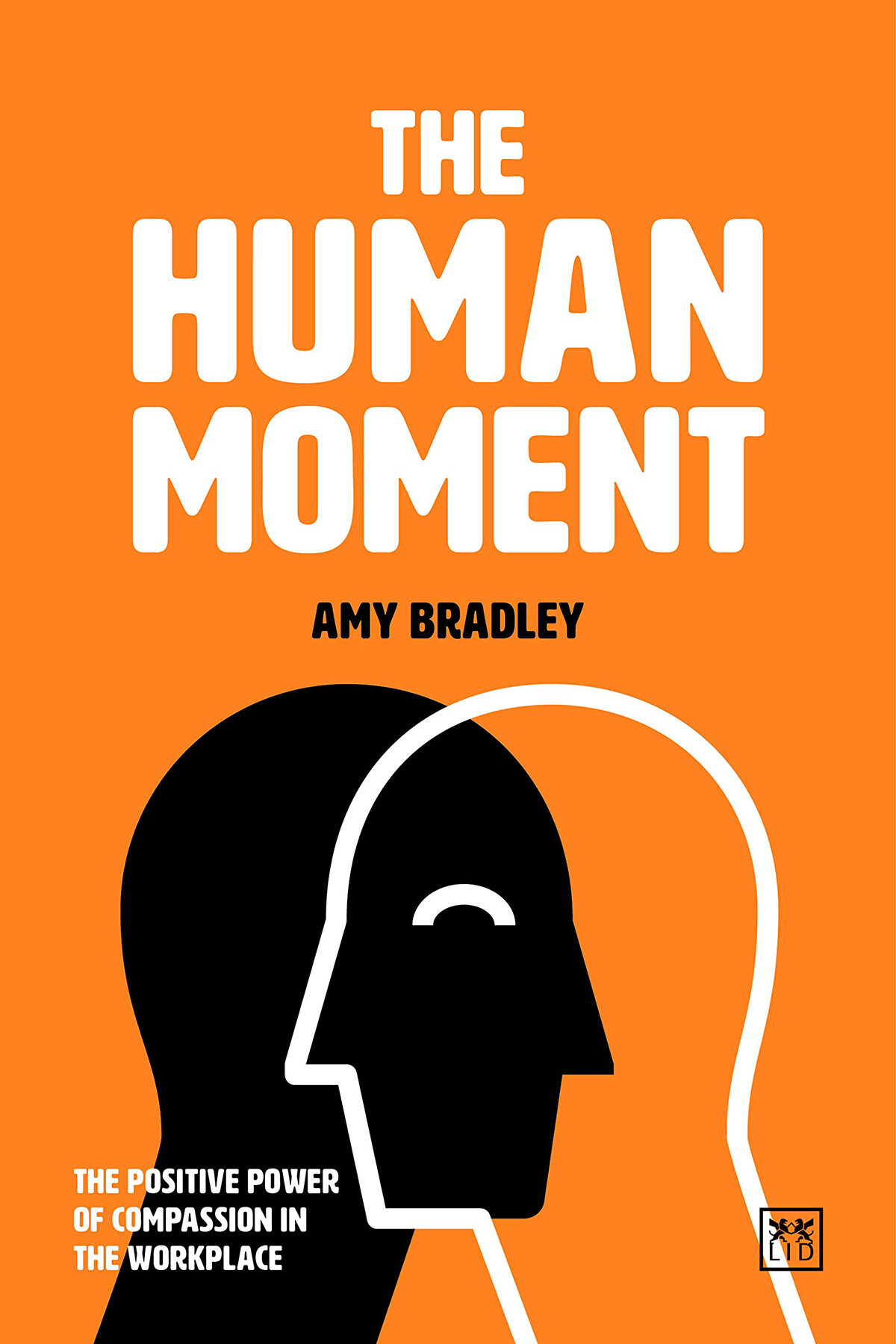Book Review: The Human Moment: Creating a Culture of Compassion in the Workplace by Amy Bradley
Compassion, at its core, is a distinctly human act. Does that mean that organizations cannot be compassionate? Readers of Dr. Amy Bradley’s thoughtful book, The Human Moment: Creating a Culture of Compassion in the Workplace, will come away not only realizing the critical importance of compassionate organizations, but also an encouraging path to follow in order to successfully embed compassion into organizations.
Compassion in the workplace is a particularly personal topic for Dr. Bradley, who experienced her own traumatic loss, and was a first-hand beneficiary of compassion at the time of that loss. The support she received played an important role in launching her scholarly practice, which has ultimately led to this book. The book’s chapter “Learning the Hard Way,” is a hopeful narrative of the positive that can come from difficult life events, and is based on Bradley’s PhD dissertation, “I’m a Better Manager: A Biographic Narrative Study of the Impact of Personal Trauma on the Professional Lives of Managers in the UK.”
The Human Moment is very well researched, and makes a compelling case for the need for compassion as well as the costs and dangers that arise when compassion is absent. The challenge, however, with organizational compassion seems to be more significantly with the how we practice it and not just the reasons why we need it.
In that regard, Bradley rises to the occasion with a two-ingredient solution: one part human and one part organizational. Our work culture in many ways discourages personal connection, whether it be due to goal-oriented demands, technology, or simply a fear of not being professional enough. If we are to become compassionate in the workplace, we must have the courage to allow ourselves to be vulnerable and to talk about our own – and listen to others talk about their own – suffering. Bradley navigates this very complex subject well, outlining the challenges of meeting people through showing the importance of context, the power of deep listening and “gentle inquiry.”
Bradley uses evidence-based practices and three organizational case studies to lay the path from the human practice of compassion to an organizational attribute. The Human Moment outlines four important elements of organizational compassion: organizational culture, leadership, social networks, and systems and practice. These elements are further illuminated by specific examples of each of the four keys to organizational compassion, as well as more in-depth case studies of three companies who have been successful in making compassion a core part of their organization.
The most powerful forms of compassion are experienced at a human scale. The Human Moment very deftly acknowledges this truth and also teaches how organizations can create environments that support the flourishing of human compassion within its walls.


